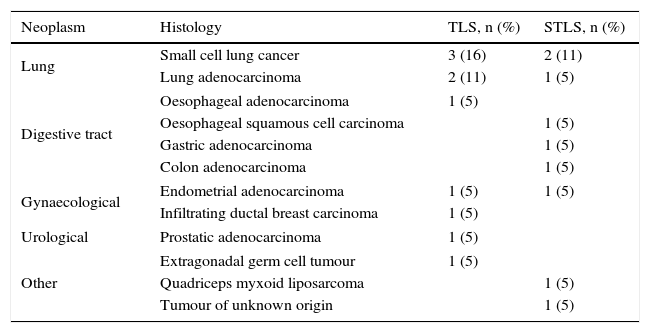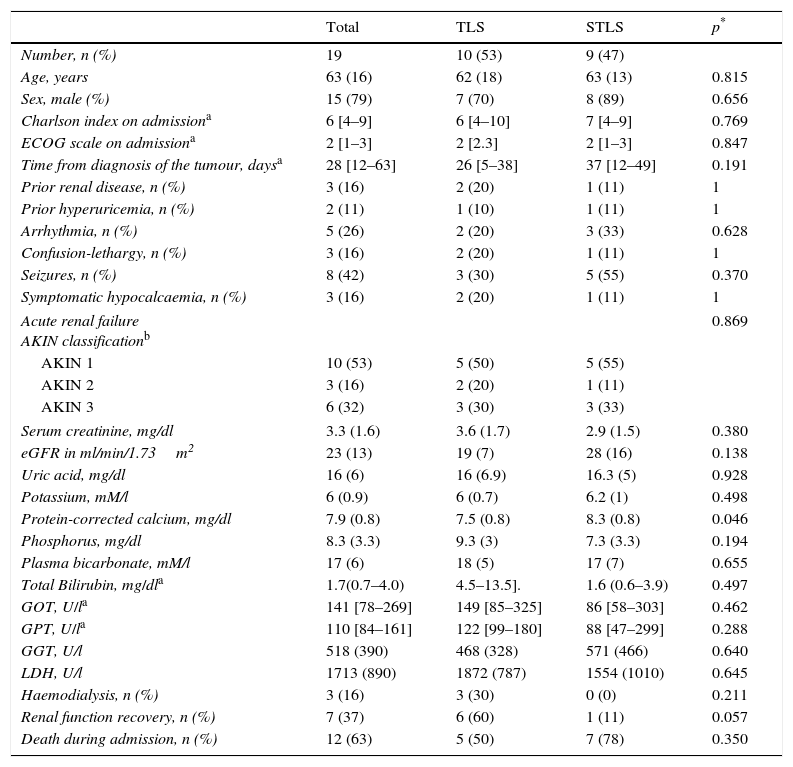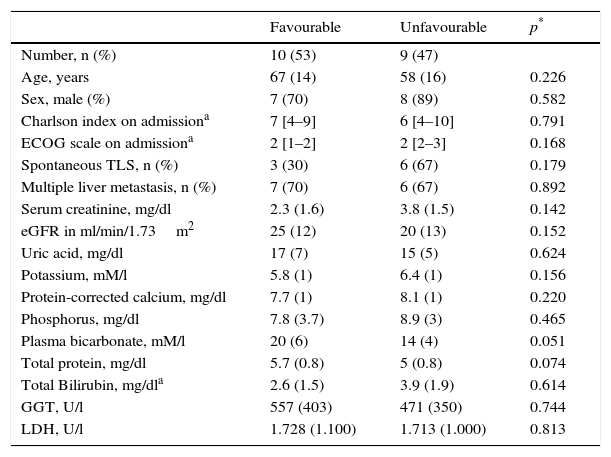Tumour lysis syndrome (TLS) is an uncommon complication in solid tumours following treatment initiation, and its spontaneous development (STLS) is exceptional.
In this study, we analyse the main clinical and prognostic features of a case series with TLS and STLS.
Material and methodsObservational retrospective study in which we included all patients with solid tumours diagnosed with TLS and STLS over a period of 16 years, according to Cairo-Bishop criteria.
ResultsNineteen patients were included in the study (mean age 63±16 years): 10 patients (53%) with TLS, and 9 (47%) STLS. The primary tumour in 8 cases (42%) was lung cancer.
All patients had severe renal impairment at the time of diagnosis along with hyperuricemia (16±6mg/dl) and hyperkalemia (6±0.9mmol/l).
Despite treatment with intravenous fluids, urinary alkalinisation and rasburicase, 3 patients (16%) required dialysis, and 12 (63%) died during the follow-up period.
ConclusionsThe development of TLS in solid tumours is associated with increased mortality and therefore, a high index of suspicion is essential for early diagnosis and treatment initiation.
El síndrome de lisis tumoral (SLT) es una complicación poco frecuente en neoplasias sólidas tras el inicio de tratamiento, y su desarrollo espontáneo (SLTE) es excepcional.
En este estudio se analizan las principales características clínicas y pronósticas de una serie de casos con SLT y SLTE.
Material y métodosEstudio retrospectivo observacional que incluyó a todos los pacientes con neoplasias sólidas diagnosticados de SLT y SLTE en nuestro hospital en un período de 16 años, siguiendo los criterios de Cairo-Bishop.
ResultadosSe incluyeron 19 pacientes (edad media 63±16 años): 10 pacientes (53%) presentaban SLT y 9 (47%) SLTE. En 8 casos (42%) el tumour primario fue de pulmón.
Todos los pacientes presentaban deterioro grave de función renal en el momento del diagnóstico, asociándose con hiperuricemia (16±6mg/dl) e hiperpotasemia (6±0.9mmol/l).
A pesar del tratamiento con sueroterapia, alcalinización y rasburicasa, 3 pacientes (16%) requirieron tratamiento dialítico y 12 (63%) acabaron falleciendo durante el ingreso.
ConclusionesEl desarrollo de SLT en neoplasias sólidas se asocia a una elevada mortalidad, por lo que es necesario un alto índice de sospecha para el diagnóstico e inicio precoz de tratamiento.
Artículo
Comprando el artículo el PDF del mismo podrá ser descargado
Precio 19,34 €
Comprar ahora









